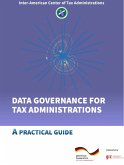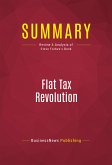This edition presents sixteen (16) articles: The punishability of companies as a form of social reparation for tax offenses committed; Principles of tax law; The unjustified patrimonial increase as an instrument to tax hidden assets; The competent authority to declare tax avoidance in Chile and in comparative law; Inequality and income taxation in Brazil: a comparative analysis and reform proposals to achieve greater equity; Environmental taxes in Honduras, a taxation perspective and their effects on climate change; Remote review and auditing procedures. Regulations necessary for their integral implementation; The human capital of tax administrations in the exponential era; Anti-BEPS tax reforms and the WTO: addressing global tax challenges; Deductibility of financial expenses and their tax incidence. International comparison; Factors affecting the voluntary use of electronic tax documentation in Chile. Case: electronic sales and services ticket; Tax havens: "Tax Quarantine" in domiciles of convenience and base companies. A Peruvian approach; Tax reform in Paraguay: Evolution, reforms and challenges. Period 2018-2022; Subjects without operational capability (SSCO) the effective procedure to combat fictitious operations. New legislation applicable in Peru; DeFi regulation proposal: Stimulating financial innovation with transparency and tax liability; Tax and customs compliance risk management and institutional risk management: concepts, similarities, differences and integration with strategy.
Dieser Download kann aus rechtlichen Gründen nur mit Rechnungsadresse in A, B, BG, CY, CZ, D, DK, EW, E, FIN, F, GR, H, IRL, I, LT, L, LR, M, NL, PL, P, R, S, SLO, SK ausgeliefert werden.









